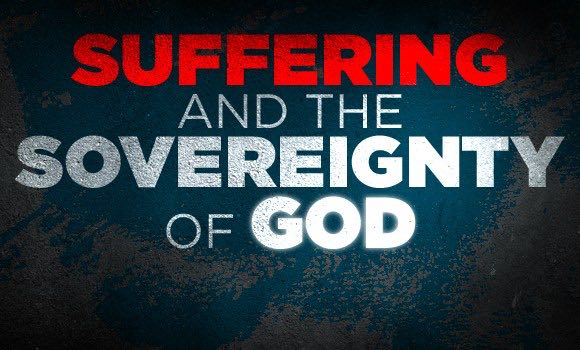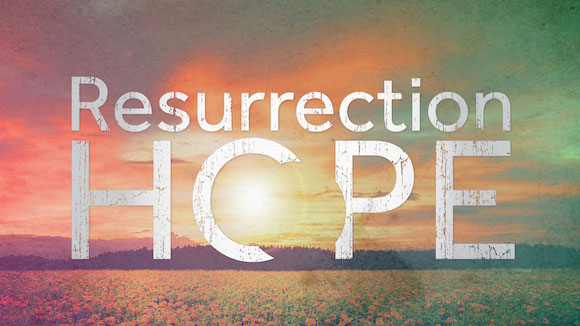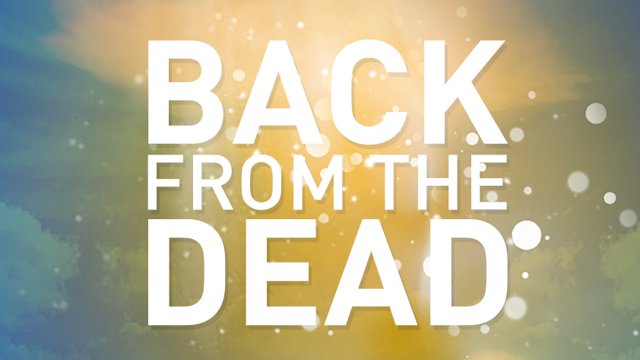I just returned from spending two weeks in the country of Turkey. During my stay in Istanbul, there was a terrorist attack at a night club on New Year’s Eve. When we all woke up on New Year’s Day to hear of the news of the terrorist attack, we were saddened by another senseless killing in the country of Turkey.
Thankfully, neither myself nor the friends I was staying with in Istanbul knew of anyone involved in that terrorist attack, however, we went to another family’s home for brunch later that morning to celebrate New Year’s Day and one of the sons of that family explained to us that one of his friends works as a bouncer at that particular night club. When we first arrived he told us that he knew that his friend was working there on New Year’s Eve but he hadn’t heard anything yet about his friend’s condition. He didn’t know whether he was dead or alive.
We sat down to eat brunch together and at some point during the brunch the son of the family received a message that his friend was alive and well. He was relieved and we were too. The knowledge of someone’s fate of being dead or alive affects each one of us in a dramatic way. The knowledge of someone’s death brings grief and mourning, whereas, the knowledge of someone’s life and well-being gives us hope and joy. This is one of the main themes of this week’s Torah Portion as we continue to read about the life of Joseph.
Va’Yigash – ויגש
This week’s Torah Portion is called “ויגש” – “va’yigash” and means “and he approached.” The title of this week’s Torah Portion properly sets the stage in the continuation of the story of Joseph. As we begin to read this week’s Scriptures from the Torah, Judah had approached the ruler of Egypt to plead with him to exchange his own life for the life of his younger brother Benjamin. Judah did not know that the ruler of Egypt was Joseph, however, Joseph knew that it was Judah and his brothers.
By the time Judah had finished making his case for his brother Benjamin, Joseph could no longer control himself. Joseph sent all of the Egyptians out of his presence and he was left alone with his brothers:
Then Joseph said to his brothers, “I am Joseph! Is my father still alive?” But his brothers could not answer him, for they were dismayed at his presence. Then Joseph said to his brothers, “Please come closer to me.” And they came closer. And he said, “I am your brother Joseph, whom you sold into Egypt.” – Gen. 45:3-4
When Joseph revealed himself to his brothers they were so completely astonished that they could hardly believe that it was really him.
Joseph’s brothers had sold him into slavey and counted him as dead (Gen. 44:20). It had been 28 long years since they had last seen their brother alive and they had no hope for his future as a slave. When Joseph revealed himself to his brothers he shattered all of their false premonitions for his life. Joseph was not only alive but he was the ruler over Egypt, second to Pharaoh.
The Hand of God
Joseph knew that his brothers would not only be surprised to know that he was alive and ruler of Egypt but that they would also feel remorse for their harsh treatment of him. In order to relieve their guilt and shame, Joseph immediately addressed this issue: “Now do not be grieved or angry with yourselves, because you sold me here, for God sent me before you to preserve life.” (Gen. 45:5) Joseph had forgiven his brothers before they had even asked.
Joseph had plenty of time to consider the dreams that God had given him and the way in which all of the circumstances had come together to elevate him to be ruler over Egypt during the seven years of plenty and the two years of famine (so far). Joseph understood that this was all from the hand of God and he also understood that whatever the reason was that his brothers sold him into slavery, God had used it for greater purposes.

The Preservation of Life
Joseph explained to his brothers that the reason that God had sent him ahead of them into Egypt was,“to preserve life.” The Hebrew word for this English phrase is “מחיה” – “mich’yah” and means “the preservation of life” or “the quickening of the flesh.” The Hebrew word “מחיה” – “mich’yah” comes from the Hebrew root word “חיה” – “cha’yah” which means “to live.” Joseph explained to his brothers that his life had been preserved in order to save their lives and the lives of others.
Joseph sent his brothers back to their father to inform him that he was indeed alive and ruler of Egypt. Twenty-eight years had passed since Jacob was confronted with Joseph’s bloody robe and Jacob had considered Joseph to be dead. Jacob’s sons then returned to their father to tell him the good news:
They told him, saying, “Joseph is still alive, and indeed he is ruler over all the land of Egypt.” But he was stunned, for he did not believe them. When they told him all the words of Joseph that he had spoken to them, and when he saw the wagons that Joseph had sent to carry him, the spirit of their father Jacob revived. Then Israel said, “It is enough; my son Joseph is still alive. I will go and see him before I die.” – Gen. 45:26-28
The lie of Joseph’s death had been so ingrained in the minds of everyone in his family that it seemed impossible to fathom that Joseph could be alive.
In the three verses quoted above, a form of the word “living” is used three times; twice in reference to Joseph and once in reference to Jacob. The phrase where this word is used in reference to Jacob is “the spirit of their father Jacob revived.” This phrase in Hebrew is “ותחי רוח יעקב אביהם” – “va’techi ruach Yakov avihem” and is literally translated, “and the spirit of their father Jacob lived.” The reality of Joseph being alive caused his father Jacob’s spirit to be restored to life. Joseph’s life gave life to his father’s spirit. We could say that Jacob was “born again” in his spirit.
Reviving of the Spirit
The example of Jacob’s spirit being revived as a result of the news that Joseph was alive is a perfect picture of what Yeshua’s life does for each one of us who come to know that Yeshua lives. Yeshua spoke the following words to his disciples before He went to the cross: “After a little while the world will no longer see Me, but you will see Me; because I live, you will live also.” (John 14:19) By these words, Yeshua predicted His death and His resurrection from the dead. Yeshua declared that in His resurrection from the dead there would be life for His followers.
The Road to Emmaus
After Yeshua’s death and resurrection, we read about an account of two of Yeshua’s followers as they journeyed from Jerusalem to a village named Emmaus. As they walked together Yeshua joined them and they traveled together, however, the two men did not know that He was Yeshua. Yeshua had asked them what they were talking about before he joined them on the journey. We read the following response of the two men in the Gospel of Luke:
And they stood still, looking sad. One of them, named Cleopas, answered and said to Him, “Are You the only one visiting Jerusalem and unaware of the things which have happened here in these days?” – Luke 24:17-18
Yeshua then acted as if He knew nothing and asked, “What things?”
Cleopas and his companion explained to their new traveling companion how Yeshua was a mighty prophet in word and deed but how He was then crucified. They explained their utter disappointment over His death as they had hoped that He was the Messiah. They then went out to explain the events of that very day:
But also some women among us amazed us. When they were at the tomb early in the morning, and did not find His body, they came, saying that they had also seen a vision of angels who said that He was alive. Some of those who were with us went to the tomb and found it just exactly as the women also had said; but Him they did not see. – Luke 24:22-24
The two followers of Yeshua knew the whole story about Yeshua and had even heard from the women who had seen the angels that the tomb was empty and that Yeshua was alive but they had yet to believe it for themselves.
Yeshua, Dead or Alive?
Up to this point in the story, the two disciples who where on the road to Emmaus still believed that Yeshua was dead. They had knowledge of Yeshua’s resurrection but had not yet believed that He was alive and were living in their despondency. If Yeshua was dead they had no future for themselves. The Man who walked with them was about to open their eyes to the miracle of the resurrection.
Yeshua rebuked the men for their unwillingness to believe the Scriptures and explained to them the plan of God for the Messiah from beginning to end (Luke 24:25-27). As they approached their destination they invited Yeshua to join them and He did. When they sat down to eat a meal together, Yeshua blessed the bread and their eyes were opened to who He really was. Yeshua then vanished from their sight and we read the following account of the two men:
And they got up that very hour and returned to Jerusalem, and found gathered together the eleven and those who were with them, saying, “The Lord has really risen and has appeared to Simon.” – Luke 24:33-34
It was only after a divine encounter with Yeshua that the two men could testify that Yeshua had truly risen from the dead and that He was alive. Because Yeshua was alive, they too became alive in their spirits.

Yeshua is Alive
The message of Yeshua’s death on the cross is very common among Yeshua’s disciples today, however, the message of His resurrection is sometimes downplayed. The apostle Paul shared the following message to the believers of his day: “For if we believe that Yeshua died and rose again, even so God will bring with Him those who have fallen asleep in Yeshua.” (1 Thessalonians 4:14) This is the message of Yeshua today, a combination of His death and resurrection. Because Yeshua lives, we too can live and be with Him for all eternity. Yeshua is Alive!
Shabbat Shalom,
If you enjoyed reading this article, share it today with friends! We also invite you to sign up for our weekly Torah Portion commentary on the sidebar to the right.
Help keep our weekly commentaries free and available to all. Click here to donate today:
Torah Portion: Gen. 44:18 – Gen. 47:27
Haftara: Ezekiel 37:15-28
Return to Torah Portion Homepage
Copyright Jewels of Judaism. All rights reserved 2016



Thank you, Daniel! Your exposition of the Gen 45:26-28 verses about the word “living” is very good. The is no end of the complexities of our GREAT GOD!
God bless you Rosa!
Daniel
Daniel~Thank You ! I always glean from your commentaries on the Torah portions. This was , as always, ‘spot on’, in my humble opinion! Too, Thank you for investing your time to ‘highlight’ the deeper meaning of the scriptures. The Lord Bless you Daniel . Shalom from NC~USA
I appreciate the feedback and encouragement!
Shabbat Shalom,
Daniel